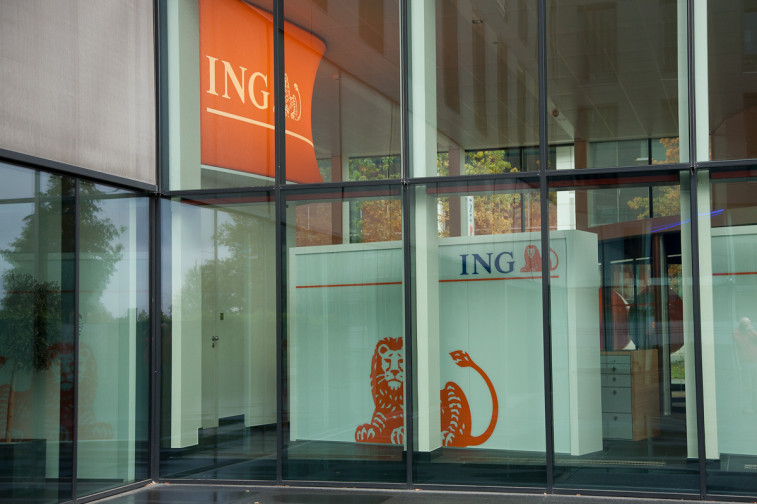Men and women : different views on investing
80% of men report having investment compared to only 69% of women.
Are men and women equal when it comes to investing? Do they have different investment behaviour? The new IIS study from ING gives us some answers.
Women tend to think that they lack financial education compared to men
45% of women in Luxembourg fear lacking money by the end of their life
80% of men report having investment compared to only 69% of women
Men and women are not equal when it comes to investments
The ING study shows that men and women act differently when it comes to investing, saving or using their money. One of the main differences is that fewer women invest than men. According to the IIS study of 2019, only 69% of women report that they have investments, compared to 80 % of men. Furthermore, when these women invest, the amounts that they do invest tend to be smaller than those of men. This can be explained by the fact that generally speaking, women have less savings than men. For example, 11% of women say that the total amount of their savings is less than a month’s salary, compared to only 6% of men.
The gender gap and its consequences
According to Eurostat, women in Luxembourg are still less paid than men (about 5% less). They also take longer career breaks (maternity breaks for example) and are likely to work part-time. The gap between men and women is big significant and cumulative. That is to say that a small gap in the beginning becomes a large gap, the more time passes. Consequences for women are significant (see graph).
Example: If in Europe a man starts his career with a salary of EUR 1,680 net/month, while his female counterpart receives only EUR 1,600 for the same position. Over a career of 45 years, the difference in terms of net salary will be EUR 89,011.
This translates into a significant handicap for women when it is time to retire. As a consequence, 45% of women think they will not be financially secure for their whole life. This is almost one in two women.
What is the best investment strategy for a woman?
Women tend to think that they lack financial education compared to men. Although this trend is going towards more equality, women still tend to believe that their male counterparts have, on average, a better knowledge of financial matters. Women are less likely than men to think that they understand each type of investment. This perception of lower financial literacy among women impacts their self-confidence and leads them to invest less of their assets than men. Slightly more women think that they should know more to invest more.
Investment is a tool that allows for building long-term financial future. For a long term investment (more than 10 years), women in Luxembourg invest as follows:
71% in real estate
29% in pension plans
11% in funds of a financial institution
8% in shares
(they can also invest in more than one product)
The important thing is not the distribution of investments but rather to start investing and to do it consistently.
Afraid to take the plunge?
In addition to differences in wealth accumulation and income, which impacts their capacity to save and invest, the study also shows that women and men have different behaviors which results in different investment and savings strategies. On average, women invest a smaller portion of their wealth than men: 21% for women versus 29% for men. Furthermore, when they receive an important sum of money, women are less likely to say that they will invest it in the financial markets: 24% for women versus 42% for men.
ING International Survey
In the context of the ING International Survey, the ING Group surveyed a thousand residents[i] in 13 European countries (as well as Australia and the USA) about their attitude and expected standard of living on retirement. It is apparent from this survey that a care-free retirement seems financially beyond the reach of a number of Luxembourg residents.
The ING International Survey is conducting larger surveys of this kind in Europe, with a view to developing a better understanding of how people spend, save and invest their money.
[i] except in Luxembourg where only 500 people were surveyed
More information here
Communiqués liés
La réponse de Luxair aux défis de brouillage GPS
Récemment, des incidents de brouillage GPS ont été signalés dans l'industrie...
Drees & Sommer chez 10x6 : Aperçu de la vision du New Europ...
Drees & Sommer Luxembourg a le plaisir d'annoncer sa participation à l'événem...
Un résultat courant en hausse de 7,5 % par rapport à l’e...
Dans un climat incertain, Banque Raiffeisen reste fidèle à ses valeurs et à s...
NMB Bank brings East Africa’s first sustainability bond to...
Just over a year after listing the first Sub-Saharan Africa gender bond on the L...
Allen & Overy announces first promotions in Luxembourg for A...
Allen & Overy (A&O) has announced the promotion of two new partners, three new c...
Il n'y a aucun résultat pour votre recherche







